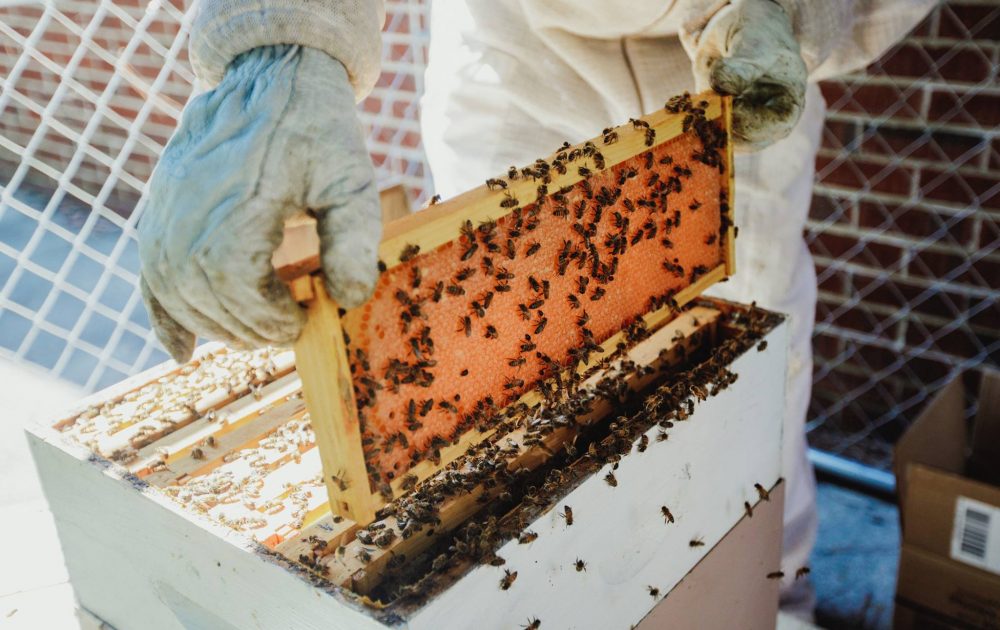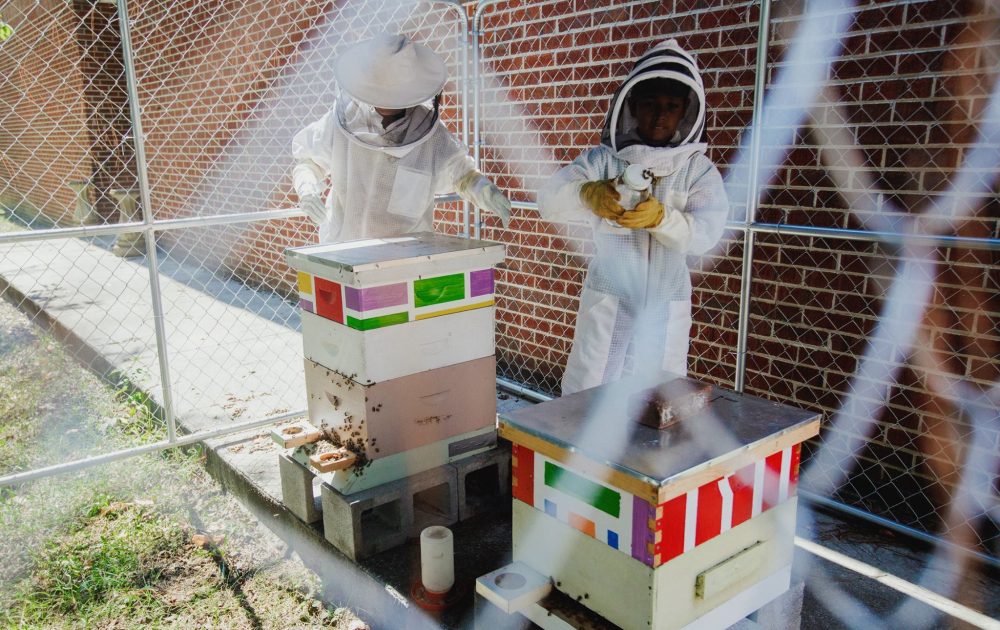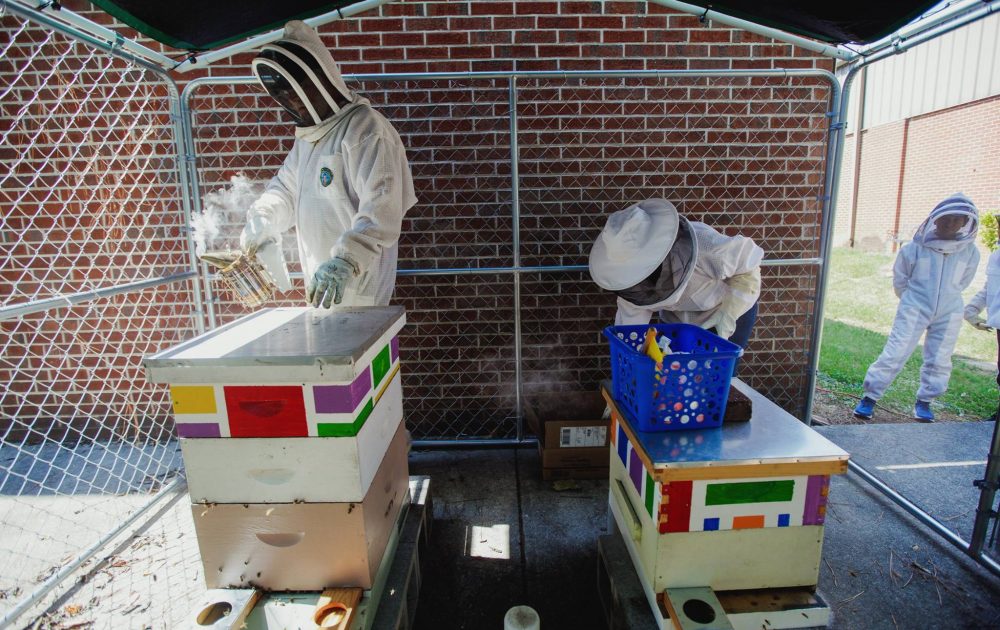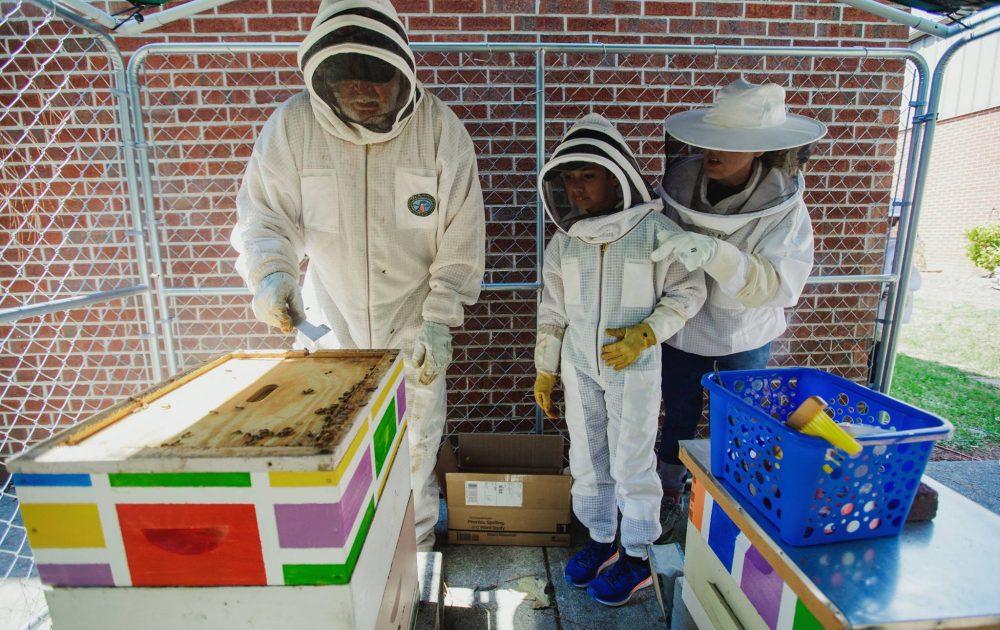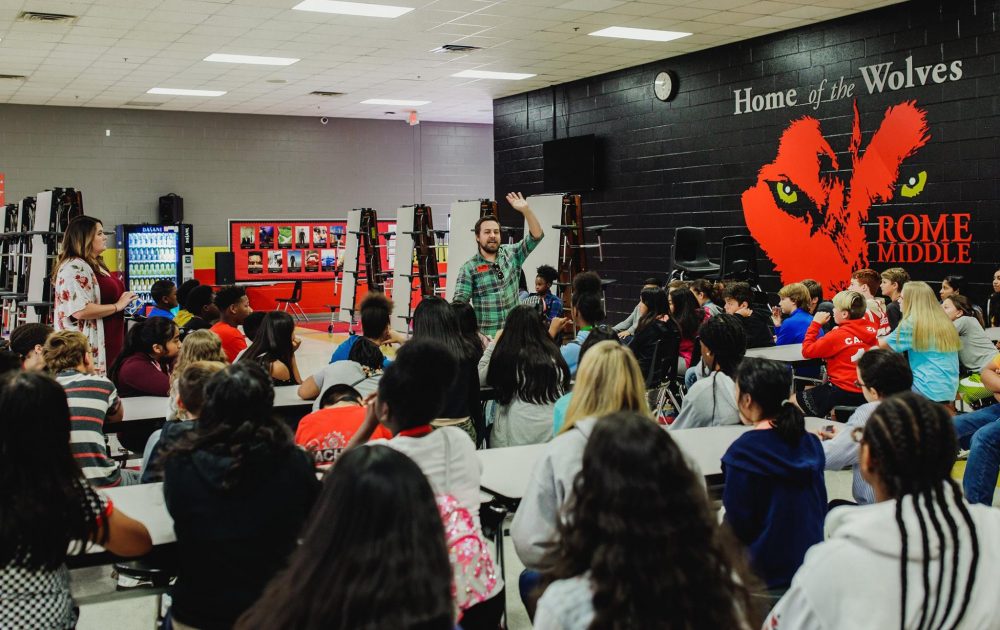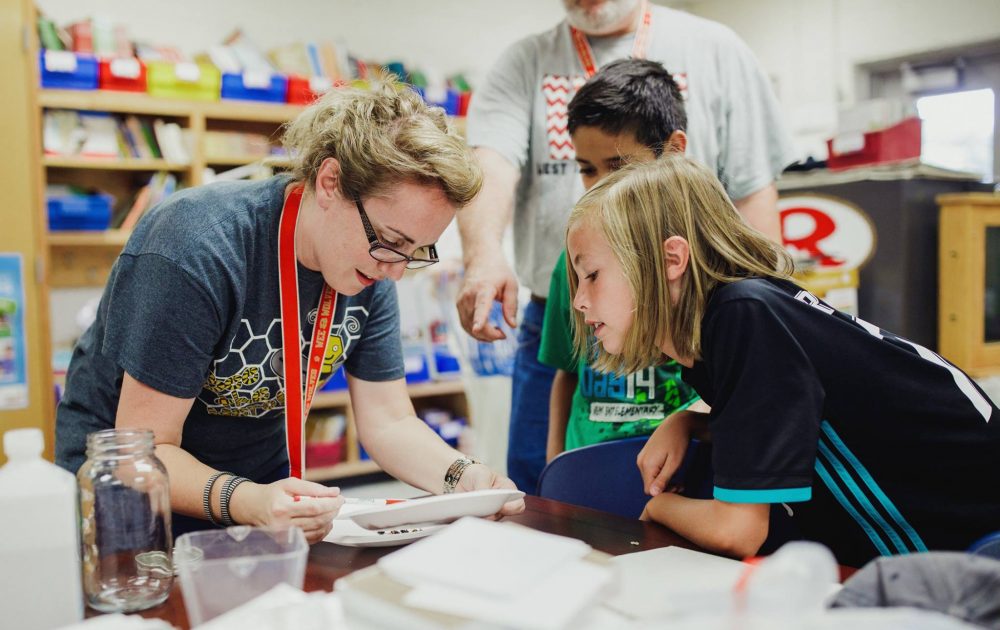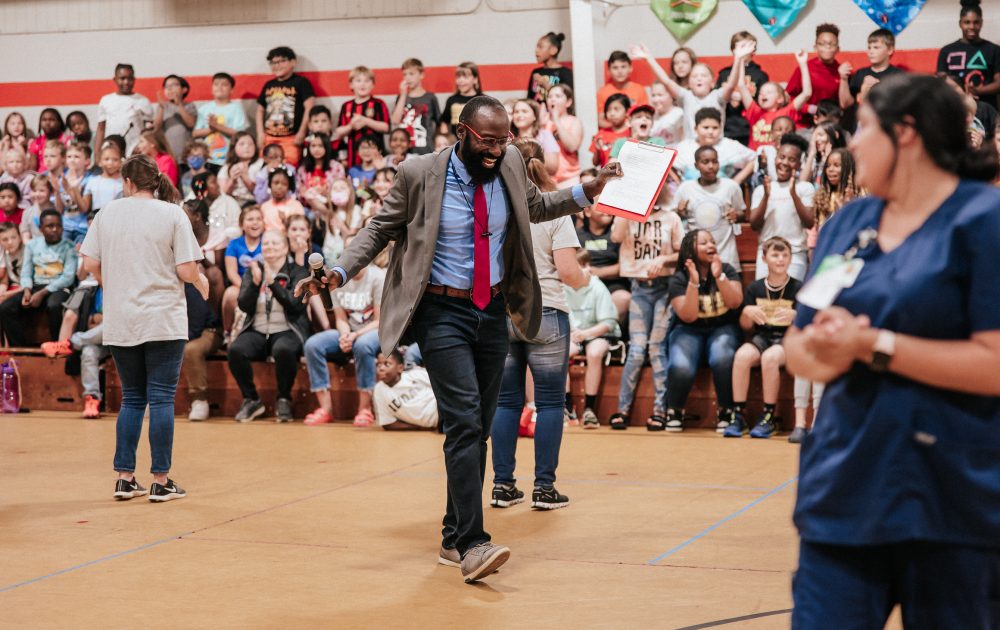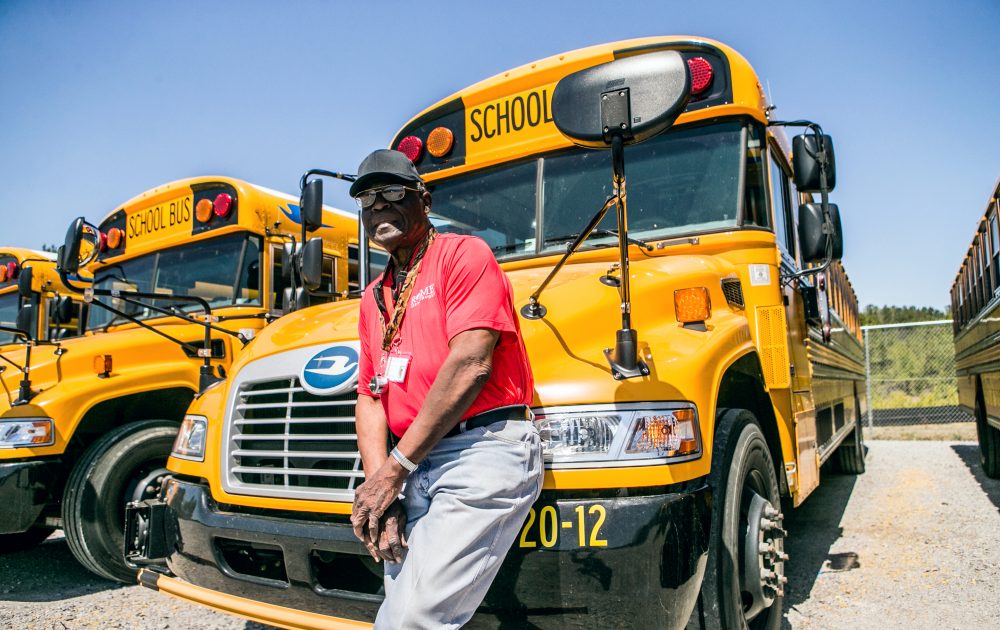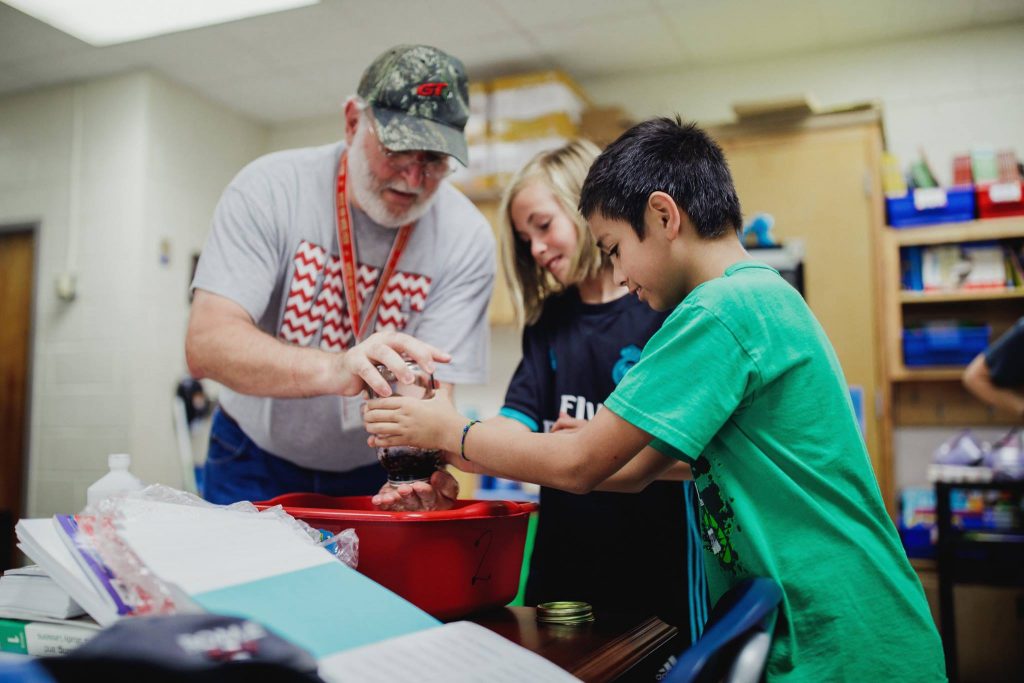
Photos by Rome City Schools
Two West End Elementary students, Michael Rios-Campos and Tripp Watterson, were able to suit up in protective gear in order to help the West End’s bee keepers feed the two beehives located on campus, as well as help test the bees for varroa mites.
Tiffany Abbott-Fuller, Instructional Coach and bee keeper at West End, and Steve Meyers, kindergarten teacher and bee keeper at West End explained the process of feeding (giving the bees sugar water), as well as the process for the main purpose of working with the bees, which was testing for varroa mites.
“Varroa mites are external parasites that attack honey bees by positioning themselves on the abdomen part of the bee. Here they suck the blood from the bees, producing viruses while weakening and shortening the bee’s life,” explained Meyers. “Untreated infestations of varroa mites will increase and may kill colonies in the long run.”
Abbott-Fuller explained the testing process; “We do this by using an alcohol wash method. Based on the numbers we count today, will determine whether or not we need to treat in the future.”
“Right now, we are in the dearth, meaning there is not much pollen or nectar out for the bees—meaning we have to supplement food with sugar water. Our sixth graders currently go out to the hive between two to three times a week to replace the sugar water. This is the safest method of introducing bee keeping to students, because there is no interaction with the bees,” said Abbott-Fuller.
This is the first year West End has been training students, which has proved successful thus far.
Michael Rios-Campos, a sixth grader at West End Elementary who is currently being trained as a bee keeper, enjoys learning all the ins and outs of becoming a bee keeper with Abbott-Fuller and Meyers. “Bee keeping is so much fun! I love putting on the suit and getting in there with the bees—it is exciting,” said Rios-Campos.
“The first time I ever dealt with the bees I was a little bit hesitant, but now I look forward to getting in the suit and learning about bee keeping,” said Tripp Watterson, sixth grader and aspiring bee keeper.
“The end goal with our hives is to get to a place where we can harvest our own honey and teach our kids some financial literacy by selling the honey,” explained Abbott-Fuller. “And of course, to continue teaching bee keeping and training our students so that they have a life-long skill.”

